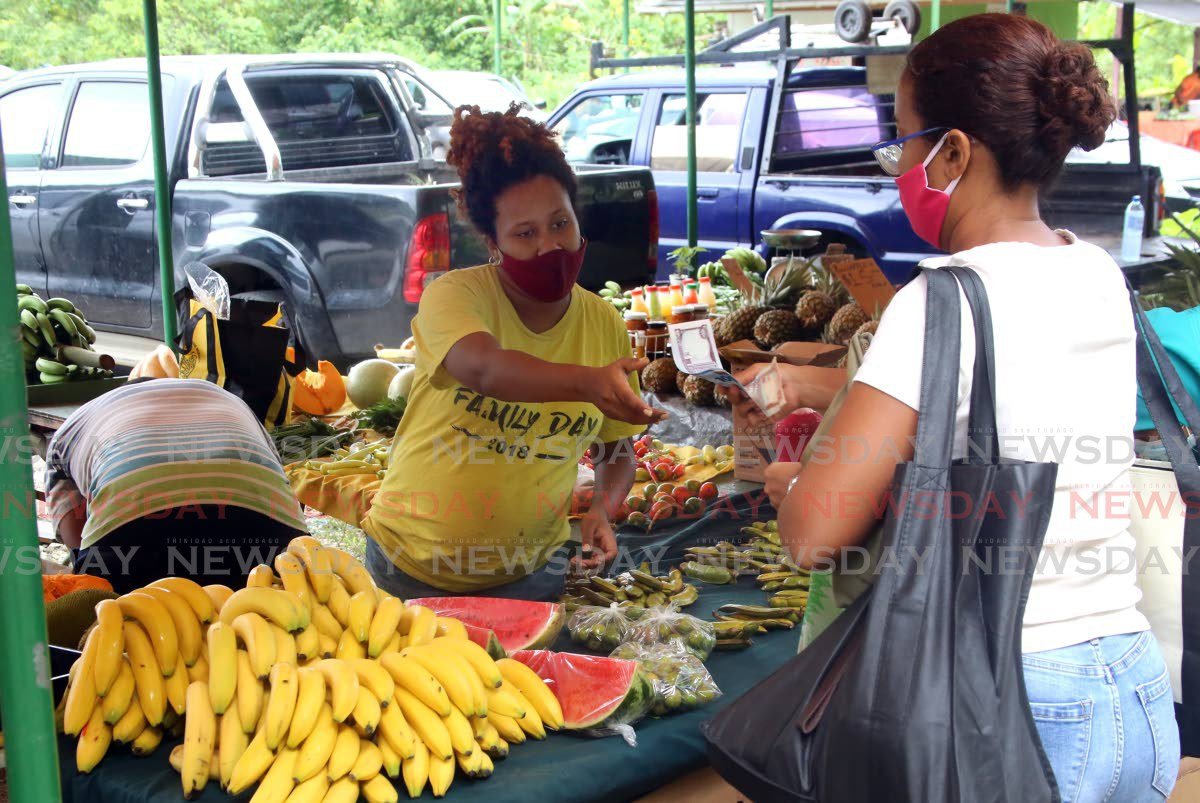Budget hints from the PNM manifesto

On Monday, Finance Minister Colm Imbert will present the national budget for fiscal 2021. He has spoken about some of the things the population can expect, notably at a recent post-Cabinet media briefing and the last week's Spotlight on the Budget and the Economy. But another resource to predict some of the upcoming measures is the People's National Movement (PNM) 2020 election manifesto. The party won the August 10 election with 22 of 41 seats.
Now before drilling down into the manifesto it must be understood that it is not a document for one year but ostensibly for the five-year election term, though at times some of the election promises are set even past that. And secondly, it is almost a cliche that a number of election promises are left unfulfilled and Imbert in the previous incarnation of this PNM administration has repeated a number of promises year-on-year, like the implementation of property tax and the TT Revenue Authority. And finally, with the reported $17 billion covid19 budget deficit hole and highly depressed energy revenues, Government doesn't have a lot of money to implement many of these promises.
Last Monday, at the spotlight event, Imbert noted that, even with the greatest of wills, it was unlikely that revenue in fiscal 2021 would exceed $40 billion. Government's mandatory spending, including transfers and subsidies, wages and social support, is estimated to be $42 billion, so the budget is already expected to in deficit.
The manifesto cites the Roadmap to Recovery committee report (expect to hear that mentioned more than once in the budget presentation) and its key stimulus areas of agriculture, manufacturing, construction, tourism, (the vague) non-oil industry, arts and culture, digital age, and services namely financial, medical and ICT.
The manifesto opens with a message from the PNM political leader and then the next topic is Creating a Digital Society. Now, there have been moves in this area in the previous five years with some digitisation of government services and more free internet access in public spaces. There is a promise to support and facilitate remote working in the private and public sector – measures that are key in these covid19 times – but there are no details on how this will happen. The promise of a Ministry of Technology and Digital Records was not fulfilled but the Ministry of Public Administration was expanded to include Digital Transformation. And the promise of a unique national e-identity would be helpful with so many people requiring fast social services support – a notable example is the number of complaints regarding applying and receiving the salary relief grant. On the removal of taxes on computers, mobile and digital equipment, cellphones, software and accessories, Minister Imbert tweeted last month that these would be removed, but according to the legal notice of the announcement, that waiver is only until December 31, although it is possible this may be extended.
Housing
On the topic of housing, there is a plan to deliver 25,000 new homes on state lands over the next decade, which would be 2,500 per house. With the collapse of the controversial deal with China Gezhouba Group International Engineering Co Ltd to build 5,000 housing units across TT in 2019, expect to hear something about housing construction come Monday.
Creative industries
On the topic of creative and cultural industries, there may be some revamped policy measures like the local content guideline for all media houses, the collection and publishing of local cultural statistics and a calendar of events. Of the seven projects noted in the manifesto/Roadmap, the costlier ones like a Carnival museum would likely be on the back burner, and the restart of the pan in the school programme would likely be delayed as classrooms are currently virtual.
Diversification
It wouldn’t be an election manifesto if there was not a mention of diversification. There is a promise of continuous and timely availability of VAT refunds through a ring-fenced fund for payments and refunds. But Government needs to have money to pay VAT refunds so this one does not seem that likely in this extreme guava season. It is possible though, that in the interim, to clear any backlog, Government may in the interim consider continuing the programme of issuing tradeable government bonds in lieu of cash payments. The establishment of a special purpose state enterprise to help SMEs with start-up and working capital sounds counterintuitive for a government that has been promoting a lean public service.
Social services
One topic you should expect to hear is supporting vulnerable groups: social service delivery. These promises range from the technical (a data management system) to the the practical (establishment of more shelters). The latter would be a continuation of state shelters opened in the last administration. There is also mention of a unique e-identifier for social services, which would be in concert with the previously mentioned national e-identity. This one is a likely measure with so many people suffering economic hardships and even on the breadline due to the continuing covid19 stranglehold on the economy.
Agriculture
Regarding agriculture, to quote the manifesto directly: “Over the last 50 years, various policy frameworks, expenditure priorities, and development theories have challenged the agricultural sector and led to declining, faltering, or inappropriate investments in the sector.” Now, in the last administration the PNM did remove all taxes and duties from imports on all inputs and resources by registered farmers and there is a promise of $500 million in fiscal 2021 to 2022 to stimulate and incentivise all aspects of the sector. Dr Rowley also talked agriculture during his swearing-in, including encouraging young people from across the country to be supported in establishing additional farms as well as supporting existing farms. Agriculture, though, is often not high on the agenda in terms of budgetary allocations, so despite the grand proclamations about investment and encouragement in the sector, it remains to be seen if it will be moved from the bottom position of major fiscal allocations, as occurred in fiscal 2020, 2019, 2018 and 2016 (it was second to last in 2017, after housing).
Manufacturing
Manufacturing has been touted as one of the major non-energy industries to help get the country out of a revenue rut and earn vital foreign exchange. To do this, Government has repeated its promises to improve ease of doing business via an electronic funds transfer framework and automating of all government services, though these are more mid to long-term items. There is also the lofty promise to improve access to finance and forex, and again the timely delivery of VAT refunds and clearing up of all outstanding refunds. Refunds, though, mean money that the Government does not have a lot of currently. What is more likely is some type of fiscal incentives to support and promote the industry.
Energy, sports tourism
The final two topics are on energy and most policy seems to be based on and a continuation of what has been happening already. Sports tourism, local and recreation are also on the agenda but with beaches and rivers closed and both domestic and international travel restricted due to covid19 preventative measures it is unlikely there will be many short term tourism measures announced in Monday’s budget. One thing for sure that punters can put good money on, though, is that the pandemic – and how it has severely restricted this Government’s spend – will feature heavily in Imbert’s presentation.



Comments
"Budget hints from the PNM manifesto"